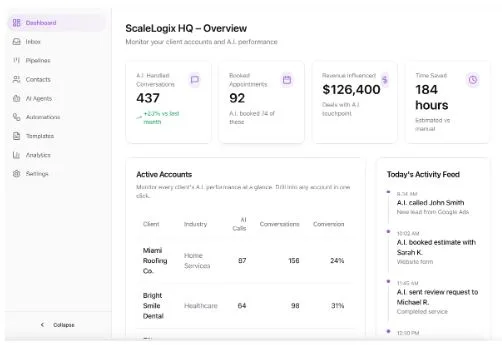7 Shocking Things You Didn’t Know Could Hurt Your New York Personal Injury Claim
When someone is hurt in a car accident, a slip and fall, or any serious incident in New York, the first thought is usually, “The truth will speak for itself.” But as Top New York Personal Injury Attorney Brett J. Nomberg knows all too well, truth alone rarely wins compensation.
“Most injury victims assume that being honest about what happened is enough,” Nomberg says. “But insurance companies have entire departments dedicated to finding small inconsistencies or technical loopholes that can weaken your claim. You can lose thousands of dollars—and sometimes your entire case—over details you never thought mattered.”
From social media posts to medical delays, and even casual remarks to adjusters, the hidden traps surrounding a personal injury claim can be shocking. Below are seven things most New Yorkers don’t realize can quietly sabotage their case—and what you can do to protect yourself.
1. Waiting Too Long to Get Medical Treatment
It’s understandable—after an accident, adrenaline floods your system, masking pain. You may think you’re fine and skip the ER. But in legal terms, those days of delay can be devastating.
Insurance adjusters call it a “gap in treatment.” To them, it’s a red flag suggesting your injuries aren’t serious or weren’t caused by the accident. Even a short delay gives insurers a foothold to argue against your claim.
“The first 24 to 48 hours are critical,” explains Nomberg. “If you’re hurt, get medical attention right away and follow up with your doctor. A consistent record of care proves both causation and severity—two things juries and insurers scrutinize.”
In other words, getting checked out isn’t just smart for your health—it’s evidence preservation.
2. Posting on Social Media—Even Innocent Updates
We live in a world where posting photos, check-ins, and updates is second nature. But what seems like a harmless “feeling better today 😊” post can turn into Exhibit A for the defense.
Insurance investigators and defense attorneys comb through Facebook, Instagram, TikTok, and even old Twitter posts, looking for anything that contradicts your injury claims. That photo of you standing at a family barbecue? To a jury, it could suggest you’re not as injured as you claim.
“Once you file a personal injury claim, your life is under a microscope,” Nomberg warns. “I always tell clients—assume every post is being watched and could be misinterpreted.”
Even private accounts aren’t immune. Subpoenas can—and often do—compel access to your posts.
3. Missing Hidden Deadlines
Most people have heard of the three-year statute of limitations for personal injury cases in New York. But very few know about the dozens of shorter, stricter deadlines buried in the state’s legal code.
For instance, if your injury involves a city vehicle, a subway accident, or property owned by a government agency, you must file a Notice of Claim within 90 days. Miss it, and your right to sue could vanish entirely.
“Government cases move on a different timeline,” Nomberg explains. “I’ve seen strong cases collapse simply because a victim didn’t know they had to notify the city within three months. By the time they call a lawyer, it’s too late.”
This is one reason it’s vital to contact a personal injury attorney immediately after an accident—before critical deadlines quietly expire.
4. Talking Freely with Insurance Adjusters
It’s one of the most common—and most damaging—mistakes victims make. Shortly after an accident, you’ll likely get a friendly call from an insurance adjuster “just checking in.” They may sound compassionate. They may even offer to “get your claim started.”
But make no mistake: everything you say is being recorded, transcribed, and analyzed. Innocent phrases like “I feel fine” or “I might have been distracted” can be twisted to imply fault or minimize injury.
“You’re not required to give a recorded statement,” says Nomberg. “And you should never do so without an attorney present. Adjusters are trained to get admissions that sound harmless but can later devastate your case.”
The golden rule? Never speak to the other side’s insurance company without legal representation.
5. Downplaying “Minor” Injuries
A sore neck. A twinge in your lower back. Some dizziness. After an accident, these might seem minor enough to shrug off. But many serious injuries—like concussions, whiplash, or spinal trauma—take days or weeks to fully manifest.
Failing to document these early on can cause huge problems later. If you only report the major pain points, insurers will argue your later-discovered issues aren’t related.
“I’ve seen clients who initially thought they just had whiplash later discover herniated discs requiring surgery,” Nomberg notes. “But because they didn’t mention early symptoms in their first medical report, the insurance company claimed the surgery wasn’t connected.”
The takeaway: always tell your doctor about every symptom, no matter how small it feels at the time.
6. Accepting a Quick Settlement
If an insurance company calls with an immediate offer, you can be sure it’s not out of kindness—it’s strategy.
Quick settlements are designed to close cases cheaply before the full extent of injuries, medical costs, or lost wages become clear. Victims often feel relief seeing a check, but that signature on the settlement release is final. Once signed, you cannot reopen your claim even if new injuries emerge.
“I tell clients: if an offer comes fast, it’s because the insurance company knows you don’t yet know your claim’s full value,” says Nomberg. “It’s their job to settle low. It’s our job to make sure you’re made whole.”
Always consult a qualified personal injury lawyer before accepting any settlement.
7. Failing to Document the Human Cost
In New York, damages extend beyond medical bills and car repairs. You can recover compensation for pain, suffering, emotional distress, and even loss of enjoyment of life. But without evidence—your journal, employer notes, therapist reports, or family statements—these “invisible injuries” can be hard to prove.
A day-by-day injury journal detailing pain levels, medication side effects, and limitations on daily activities can make a massive difference in negotiations and at trial.
“Jurors are human,” Nomberg says. “When they can visualize how your injury changed your life—missed birthdays, sleepless nights, the inability to pick up your kids—it transforms your case from paperwork into a story that resonates.”
The Bigger Picture: Protecting Yourself Before It’s Too Late
A personal injury case isn’t just about proving what happened—it’s about protecting how the story is told. Every detail, document, and decision shapes that story. And once mistakes are made, they’re often irreversible.
Insurance companies are banking on confusion. They hope you’ll delay treatment, post online, or take a quick settlement out of desperation. Knowing these hidden dangers gives you power.
“Knowledge is your best defense,” Nomberg concludes. “The earlier you speak with an experienced attorney, the more we can do to protect your rights and maximize your recovery.”
If you’ve been injured in an accident in New York, time and evidence are everything.
Learn more about Brett J. Nomberg, Esq.
Law Offices of Brett J. Nomberg, PLLC
600 Third Avenue, 2nd Floor, New York, NY 10016
(212) 808-8092





